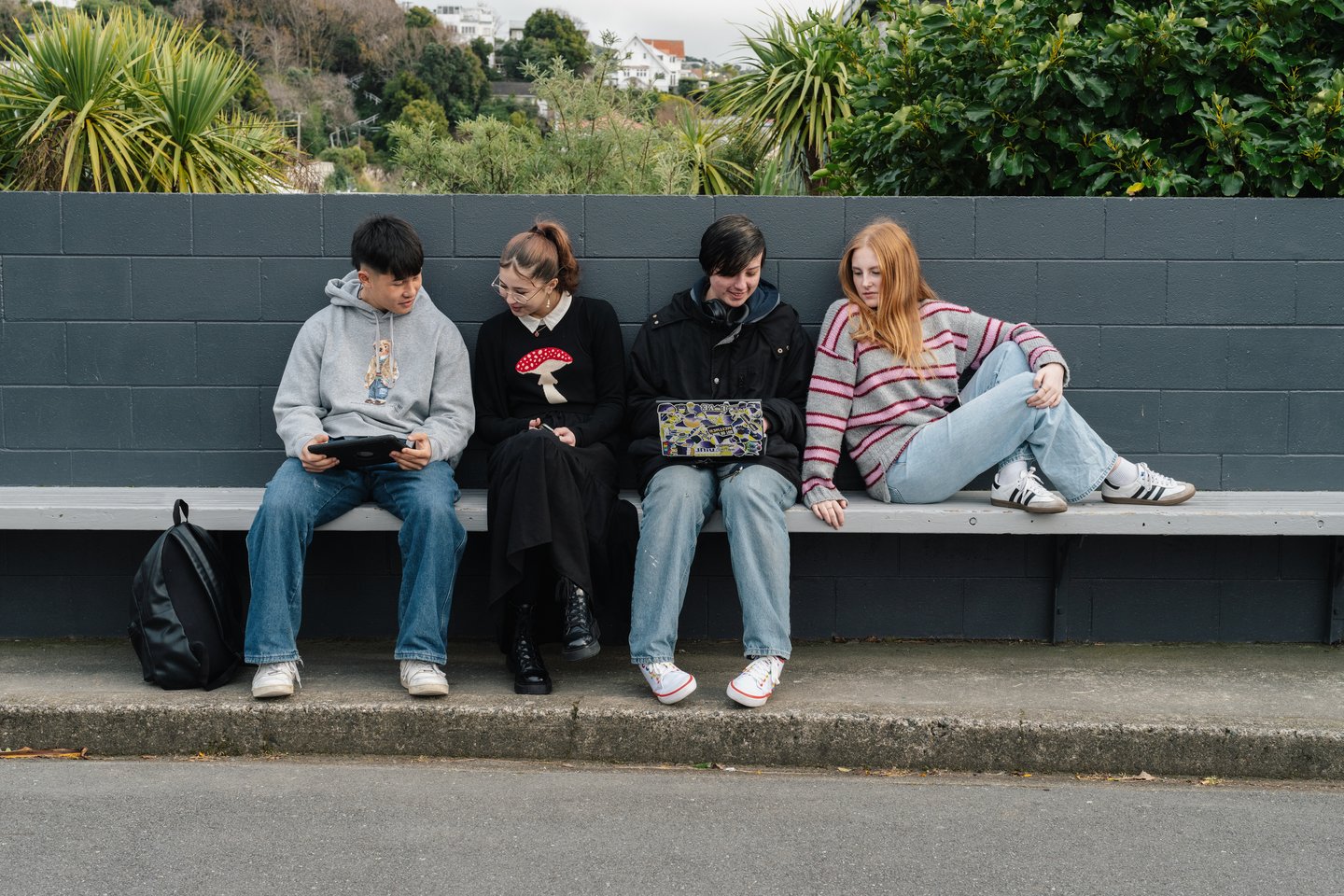
You’re in Charge: Taking Back Control of Your Online World
Jess on July 3, 2025
This blog is written by Amelia, a media studies student from Otago Girls' High School. It is one of two guest blogs she has done in celebration of Media Literacy week 2025.
During Media Literacy Week we support media studies students to write guest blogs about their personal experience of media and staying safe when using media.
Media Literacy Week aims to equip secondary students with vital skills to navigate the complexities of the digital age, fostering critical thinking and resilience in the online realm. It’s run during Term 2 at schools and kura around Aotearoa New Zealand.
Here at Classification Office – Te Mana Whakaatu we love media literacy. Being aware of media, how to use it, interpret it, decode it, and verify it, means we can be safe out there. We tautoko this education push to improve media literacy for rangatahi.
Read on for Amelia’s blog about how she protects her wellbeing online by using tools to shape her digital space.
Let’s be honest: in this day and age, social media is a huge part of life. It’s where we share memories, connect with friends, discover new interests, and keep up with what’s going on in the world. However, along with all the good stuff, it can also bring a lot of negativity. From online drama and toxic comments to harmful content and unwanted attention, things can quickly get overwhelming. That’s why it’s so important to remember one simple truth: you have the power to shape your online space.
Even though it might feel like things online happen too fast or are out of your control, most platforms actually give you a lot of tools to manage your experience. If certain accounts or types of content are messing with your mood or making you feel anxious, unfollowing or muting them can help clear out your feed without any drama. If someone is making you feel uncomfortable, unsafe, or just draining your energy, you can restrict them, or if it’s really bad, you can block them. That means they won’t be able to see your posts, message you, or interact with your content. If you come across content that’s harmful, abusive, or just doesn’t sit right with you, you can report it. Reporting isn’t just for serious emergencies, it’s a way to help make the platform better for everyone.
It’s easy to forget, but you’re not required to follow anyone who makes you feel less than your best. You don’t owe anyone your attention. If seeing someone’s posts is stressing you out, making you feel insecure, or triggering negative thoughts, it’s totally okay to take a step back. You’re allowed to choose what shows up in your space, and that includes making your profile private. If you don’t take steps to remove or mute the stuff you’re not enjoying, the algorithm might keep sending you more of the same. Having a private account gives you control over who can follow you and who can see what you share. Just like in real life, your digital space should reflect your values, your boundaries, and what makes you feel safe.
Sometimes, even after taking steps to protect yourself, things can still feel tough to handle alone. That’s when it’s a good idea to reach out for support. Organisations like Netsafe are there to help you navigate tricky situations like online bullying, unwanted contact, or serious threats. Netsafe is a website designed by a helpful team in order to make your experience online safer. They can also guide you on how to report things properly to platforms or authorities if needed. You don’t have to figure it out all by yourself.
Teenagers spend a huge amount of time online: messaging friends, watching videos, and sharing photos. However, with that constant connection comes exposure to pressure, judgment, and sometimes really detrimental content. That’s why it’s so important for young people to know they can take control of their digital spaces. Knowing how to do things like restrict, block, report, or step away when something feels off isn’t being dramatic, it’s being smart. These tools aren’t just features, they’re resources that can help protect mental health, build confidence, and remind you that your online wellbeing matters just as much as your offline one.
The bottom line is this: your online life is part of your real life, and your mental and emotional wellbeing matters in both. You deserve a digital space that feels safe, not one that adds stress or fear to your day. The tools are there, you just have to use them. And remember, if you ever feel stuck or unsettled by something you’re seeing online, it’s important to talk about it. Reach out to friends, whānau, or a helpline—there’s always someone who can help you make sense of what’s going on. Curating your feed and using safety tools can go a long way in creating a better online space for yourself, but it’s not all on you. If something feels off or harmful, you’re not alone—please don’t hesitate to ask for support. The internet can be amazing, but it can also be a confusing and challenging place. So go ahead, take control. Your online world should work for you.
Read the other guest blogs in our 2024 Media Literacy series
Further reading and resources:
- Algorithms 101 (Resource)
- Extremely harmful and illegal content online: What are young people seeing and what does it mean for parents? (Resource)
- What rangatahi tell us about seeing extreme content online (Resource)
- Understanding the Legal Line: Protecting Ourselves from Harmful Content (Blog)
- How Social Media Algorithms Shape What We See (and Why It Matters for Parents and Caregivers) (Blog)
Subscribe to our blog
Stay up to date with the Classification Office blog.


